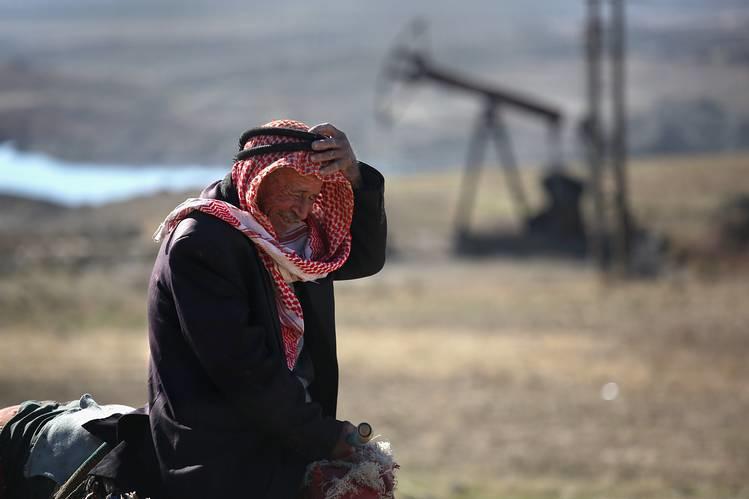
SAUDI CUTS & RAISES

Saudi Arabia on Monday unveiled plans to cut expenditures and sharply raised domestic fuel prices as the world's top oil exporter attempts to cope with a new era of cheap crude prices.
After years of spending its massive oil wealth to bolster the local economy and provide subsidized energy and other utilities to its 30 million people, a steep decline in oil prices has forced the kingdom to reassess these plans.
On Monday, officials said the government ran a record deficit of nearly 367 billion Saudi riyals ($98 billion) this year, or about 15% of gross domestic product, as low oil prices suppressed revenue, pushing it to cut planned spending by 14% in 2016 amid expectations that income from oil sales will remain under pressure.
Shortly after unveiling the budget for 2016, Saudi Arabia increased domestic fuel prices in a move that suggests that the government is willing to adopt some difficult measures as it deals with cheap oil.
A cut in subsidies risks a backlash in the kingdom as its citizens are accustomed to cheap energy and other utilities.
"The budget deficit has been compensated through the easiest way...on the shoulders of the poor citizen," Naif al-Kassim said on Twitter.
The government said it plans to spend 840 billion riyals in 2016, down from the 975 billion riyals it expects to spend this year. The kingdom usually spends more than it budgets for, as was the case in 2015 when it had planned spending of only 860 billion riyals. However, oil prices have fallen by more than 50% since the middle of last year, crimping the government's spending.
The government attributed the majority of the deficit in this year's budget to the bonus to government employees ordered by King Salman after ascending the throne. Those bonuses amounted to 88 billion riyals. There was also an additional 20 billion riyals spent on defense and security because of the Yemen war, officials said.
The kingdom expects to run a deficit of 326.2 billion riyals in 2016, as projected revenue falls to 513.8 billion riyals, down from 608 billion riyals this year, officials said.
"The budget comes in light of lower oil prices and economic and financial challenges on regional and international levels...our economy, with the help of God, has what it takes to overcome the challenges," King Salman said on state television, underlining the challenges facing the kingdom.
Saudi Arabia spends a big chunk of its cash on doling out generous benefits for its citizens, including cheap fuel. On Monday, it raised the price for Octane 95 gasoline to 0.90 riyal a liter from 0.60 riyal a liter effective Tuesday.
Prices also were increased for gas, diesel, kerosene and other utilities, such as water and electricity, a Saudi official said, calling the fuel increases "significant" as the kingdom copes with cheap oil.
The finance ministry said any changes to the current prices are aimed at achieving efficient use of energy and conserving natural resources, and would also be structured to minimize the negative effects on lower- and middle-income citizens. The government plans to adjust subsidies for petroleum products, water and electricity over the next five years, it said.
The increase in the price of these utilities, the first in several years, took many by surprise. Lines at the gas stations were getting long on Monday night and many stations are shutting down, according to residents in several Saudi cities.
However, the increase wasn't surprising to analysts, who said officials have been hinting at this possibility for months.
"This was more detailed than we thought, but it was long overdue," said Fahad Alturki, chief economist at Riyadh-based Jadwa Investment. "Reform could have been done earlier, but it is still a good time considering the current environment of low oil prices."
The budget announcement was the first opportunity for the government to publicly outline its plans for the economy after state finances were drained by more than a year of cheap oil, pushing Saudi Arabia to delay public projects and to issue bonds for the first time since 2007.
"The kingdom will fill in the budget deficit through the best financing options available, including local and external borrowing and without adversely affecting the liquidity of the domestic banking sector," said Ibrahim Al-Assaf, the minister of finance.
Despite the decline in prices and the nation's dependence on oil exports, Saudi Arabia has continued to maintain the same production levels and has chosen not to cut output alone in an effort to push up prices.
The kingdom exports about 7 million barrels of oil a day, and that revenue makes up around 90% of the government's fiscal revenue and about 40% of the country's overall GDP.
Saudi officials declined to give a specific number on what price they based the budget.
"We don't use a single price," said Khalid al-Falih, chairman of state oil company Saudi Aramco. "We realize prices are variable, and we have the capability to fund our budget under different pricing scenarios."
This budget is the first of King Salman's reign, drafted under the leadership of his powerful son, Deputy Crown Prince Mohammed bin Salman, the head of the country's new economic council.
A more comprehensive, multiyear plan that will focus on generating non-oil income and include other economic and social reforms is expected to be presented in early 2016.
-----
More:





